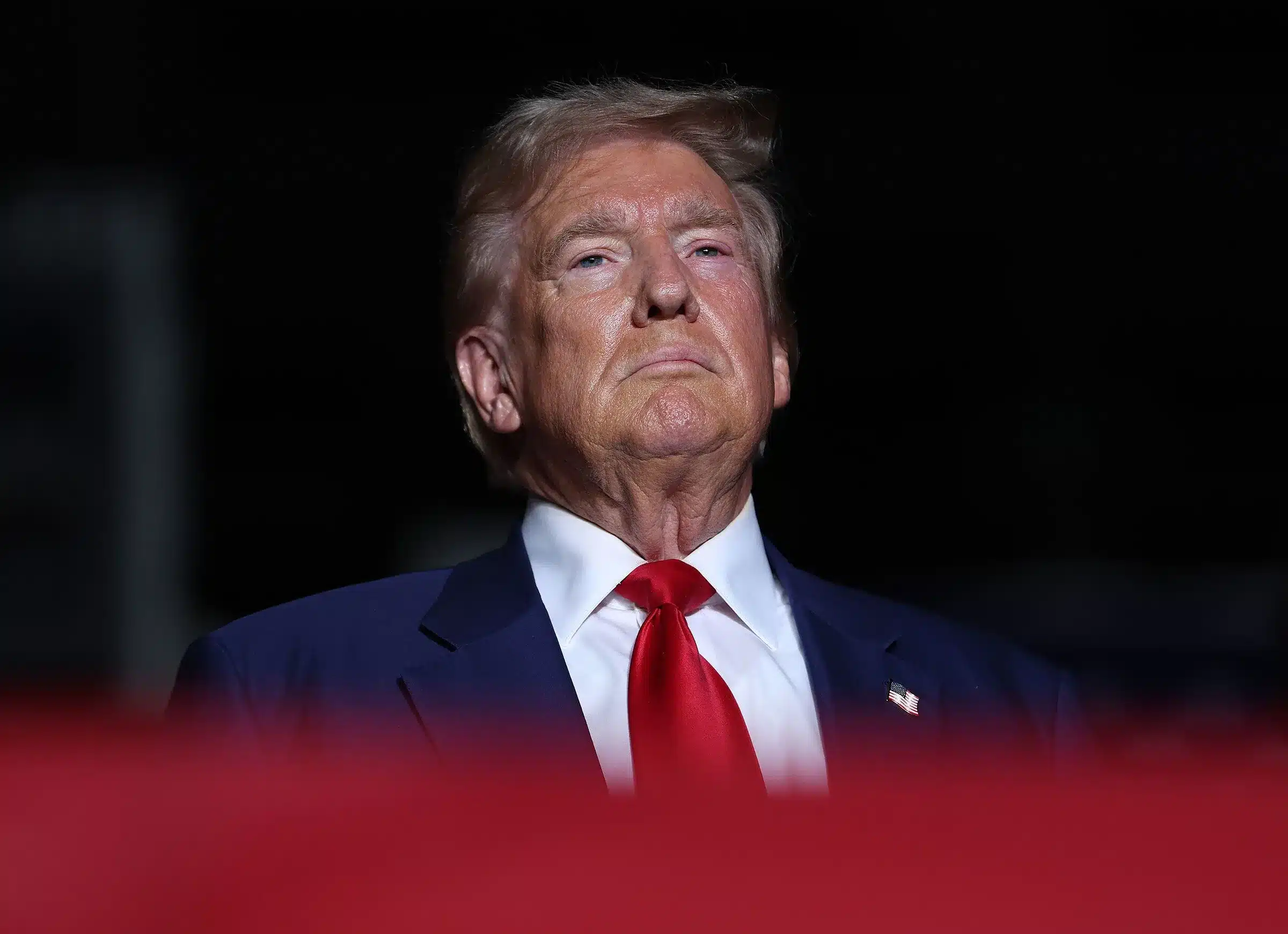- Trump concedes tariffs raise prices as Supreme Court questions his authority.
- White House prepares “game two” plan amid tariff power uncertainty.
- New crypto framework boosts market confidence under Trump’s economic agenda.
President Donald Trump has acknowledged that U.S. consumers are shouldering higher prices due to tariffs imposed on imported goods. His remarks come as the Supreme Court questions the legality of his power to set such tariffs, sparking a new wave of political and economic debate in Washington.
During an exchange with reporters in the Oval Office, Trump defended his approach, saying Americans might be paying “something,” but insisted the broader outcome benefits the nation. He argued that tariffs strengthen U.S. trade leverage and protect domestic industries from unfair competition.
However, the Supreme Court’s growing skepticism over presidential authority to impose tariffs without congressional approval has introduced significant uncertainty. Trump warned that a ruling against his administration would be “devastating” for the economy, adding that his team is preparing a “game two” plan to safeguard U.S. interests if necessary.
Also Read: Trump Media Faces Third Consecutive Quarterly Loss Amid Expanding Crypto Ventures
Trump’s Economic Vision Expands into Cryptocurrency Policy
Amid the ongoing trade dispute, Trump’s administration continues to reshape U.S. financial policy with a strong focus on cryptocurrency. Earlier this year, the president signed executive orders creating the Strategic Bitcoin Reserve and U.S. Digital Asset Stockpile, backed by confiscated assets. The holdings include major cryptocurrencies such as Bitcoin, Ethereum, XRP, Solana, and Cardano.
Furthermore, Trump strengthened the digital asset framework by signing the GENIUS Act, which introduced the first national regulations for payment stablecoins. The law mandates that all stablecoins be fully backed by U.S. dollars or safe assets and that issuers operate under strict licensing requirements.
Regulatory Reset Boosts Crypto Confidence
Additionally, the Securities and Exchange Commission under Trump’s leadership has reversed its aggressive stance toward crypto firms. The SEC dismissed lawsuits against Coinbase and Binance after Paul Atkins took over as chair and launched “Project Crypto” to modernize securities rules. Atkins emphasized that most cryptocurrencies do not qualify as securities, narrowing the agency’s oversight and providing clarity for the market.
Trump’s dual approach assertive trade measures and pro-crypto reforms reflects his broader vision of economic strength. While the Supreme Court’s decision on tariffs could redefine presidential power, his digital finance policies aim to secure America’s leadership in the global crypto economy.
